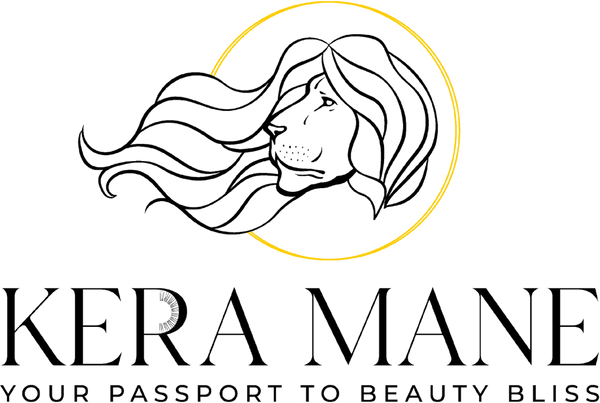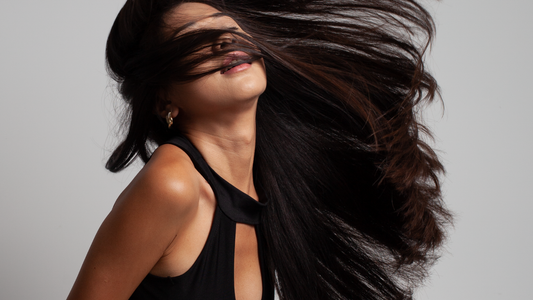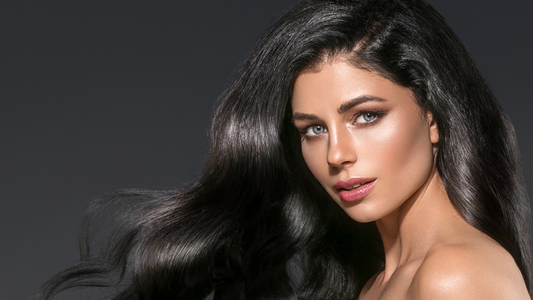Keratin treatments, like the Kera Mane Keratin Hair Treatment, have become a popular solution for managing frizz, enhancing smoothness, and improving overall hair health. However, to achieve the best results, it's essential to tailor the application technique to your specific hair type. Whether your hair is fine, curly, thick, or damaged, customizing the keratin treatment process can significantly improve its effectiveness and ensure that you get the most out of your hair care regimen. This comprehensive guide will explore how to adjust keratin treatment applications for various hair types, ensuring optimal results and satisfaction.
Understanding Hair Types and Keratin Needs
-
Fine Hair
- Challenges: Fine hair can easily be overloaded with protein, which might lead to stiffness and breakage.
- Application Tips: Use a lighter hand when applying the keratin treatment. Reduce the quantity of the product and decrease the flat iron temperature to avoid heat damage. Typically, a temperature of around 350°F (177°C) is sufficient.
- Product Selection: Opt for keratin treatments that are specifically formulated for fine or thin hair, offering lighter formulations that won't weigh down the hair.
-
Curly Hair
- Challenges: Curly hair tends to be more porous, making it prone to frizz and dryness.
- Application Tips: Ensure thorough coverage to combat frizz effectively. Use enough product to coat the curls evenly and use a slightly higher temperature on the flat iron to ensure the keratin penetrates deeply. However, be cautious not to exceed 450°F (232°C) to prevent heat damage.
- Custom Considerations: Focus on using techniques that enhance the curl pattern while reducing frizz, possibly adjusting the amount of keratin used based on the tightness of the curl to avoid flattening the curls excessively.
-
Thick Hair
- Challenges: Thick hair is often more resistant to treatments due to its volume and density.
- Application Tips: Section the hair into smaller, more manageable sections to ensure every strand is thoroughly coated with the keratin solution. Consider increasing the processing time slightly to allow deeper penetration of the product.
- Heat Application: Thick hair may require multiple passes with the flat iron, but always monitor the hair’s response to avoid heat damage.
-
Damaged or Chemically Treated Hair
- Challenges: This hair type is extremely vulnerable and prone to breakage.
- Application Tips: Use keratin treatments that contain restorative and hydrating ingredients. Apply the product with extra care and use lower temperatures on the flat iron—about 380-410°F (193-210°C).
- Special Considerations: Enhance the treatment with additional nourishing components, such as argan oil or keratin masks, post-application to help restore hair integrity and moisture balance.
Best Practices Across All Hair Types
- Pre-Treatment Care: Regardless of hair type, use a clarifying shampoo before applying the keratin treatment to remove any residues and oils for better absorption.
- Post-Treatment Maintenance: After any keratin treatment, avoid washing the hair for at least 48 hours to allow the treatment to set properly. Use sulfate-free shampoos and conditioners designed for chemically treated hair to prolong the effects.
- Regular Assessment: Regularly assess your hair's health and adjust the frequency of keratin treatments accordingly. Over-treatment can lead to protein buildup and damage, especially in fine or damaged hair.
Conclusion
Tailoring the application of keratin treatments like Kera Mane to suit different hair types is crucial for achieving the desired results without compromising hair health. By understanding the unique needs of your hair type and adjusting the treatment process accordingly, you can ensure that your hair remains healthy, vibrant, and beautifully smooth. This personalized approach not only maximizes the benefits of the treatment but also enhances your overall hair care experience.




